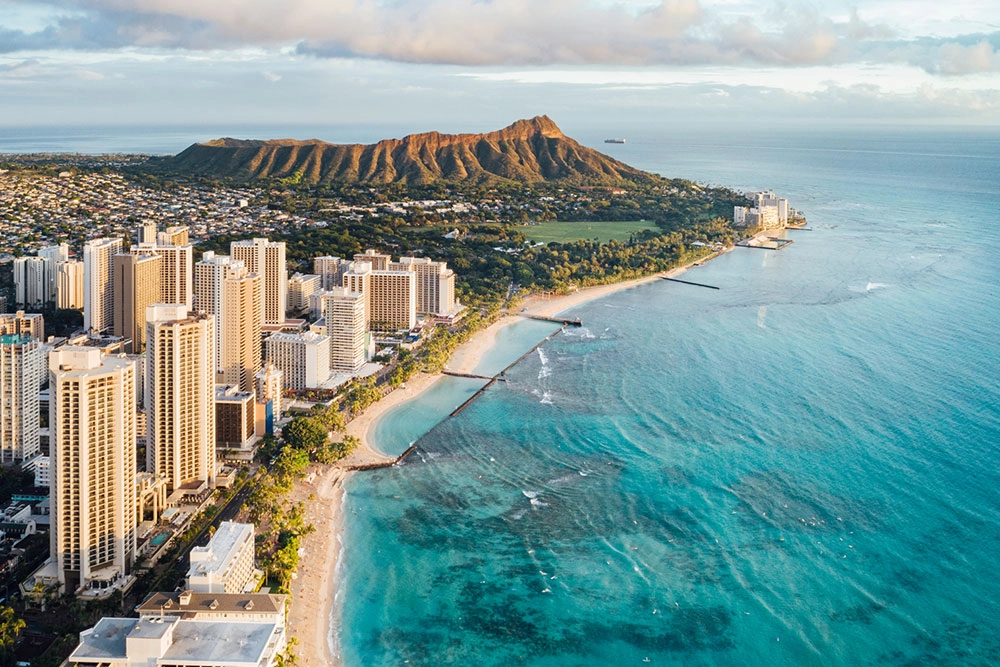Are you dreaming of living in Hawaii, but don’t think you can afford it? Don’t give up on your dream just yet! Living in Hawaii doesn’t have to be expensive, and this blog post will show you how. With a bit of planning and a realistic budget, you can make the dream of living in Hawaii come true. Read on to discover the best places to live in Hawaii on a budget, and how to make it happen.
Do your research
If you are looking to live in Hawaii on a budget, the first thing you should do is your research. Start by looking at the cost of living in the various cities and towns in Hawaii. Consider things like housing prices, utilities, transportation costs, food costs, taxes, and more. You may also want to look into job availability in the area you plan to live in. Knowing the average cost of living and job availability can help you make an informed decision about which city or town will be the best fit for you. Additionally, research potential areas to live within the cities or towns that you’re considering. It may help to search online or even talk to some locals to get an idea of what areas may be most affordable.
Consider your lifestyle
Before you can determine the cheapest places to live in Hawaii, it’s important to consider your lifestyle. Do you prefer living in a bustling city center or would you rather find a more relaxed rural area? Do you need quick access to public transportation or are you fine with driving everywhere? Are you looking for a place to entertain visitors or do you just need something for yourself and your family? All of these things factor into finding the most affordable place for you to call home in Hawaii.
When looking at different locations, take into account the cost of living in each area. Consider the cost of food, housing, healthcare, and other amenities such as shopping centers and parks. If you plan on taking advantage of the great outdoors in Hawaii, also factor in the cost of beach access and other recreational activities. Be sure to make a list of your must-haves so you can make sure you don’t overspend on unnecessary things. Once you’ve taken all these factors into consideration, you can begin to narrow down your search for the perfect spot.
Get a job
Finding a job in Hawaii is an essential step for those looking to live in the state on a budget. With the cost of living in Hawaii being higher than many other places, it’s important to have a steady income so you can stick to your budget.
There are numerous job opportunities available in Hawaii, ranging from hospitality and tourism to healthcare, education and technology. Whatever industry you’re looking to get into, there are plenty of jobs available across the different sectors.
It’s also worth exploring any internships or apprenticeships in your field if you’re just starting out. They can provide invaluable experience and may even lead to a permanent position in the future.
Another great way to find a job is to network with people in your area who are already employed. Ask around and find out which companies are hiring, then contact them directly. You never know who might be able to connect you with an ideal opportunity.
Finally, consider signing up for job alert emails or using job boards and websites to search for work. This can help you stay up-to-date on the latest openings and ensure you don’t miss out on any great opportunities.
With some research and dedication, it’s possible to find a job in Hawaii that fits your skillset and budget. Don’t give up and you’ll eventually land the perfect role.
Find a place to live
Living in Hawaii doesn’t have to break the bank. Finding a place to live can be difficult, but there are some great options that are very affordable. Here are a few of the best places to find budget-friendly housing in Hawaii.
1. Kailua, Oahu – Kailua is a popular suburb of Honolulu and has some of the most affordable housing in the state. This neighborhood is known for its laid-back atmosphere and great restaurants and cafes. You can find houses and condos for rent for under $2,000 a month and apartments for even less.
2. Makaha, Oahu – Located on the western side of the island, Makaha is a great option if you’re looking for an affordable place to live in Hawaii. This area is known for its laid-back vibe and stunning beaches. You can find apartments for around $1,500 a month and houses for around $2,000 a month.
3. Waianae, Oahu – This small town on the western side of Oahu is an excellent place to look for budget-friendly housing. You can find some apartments here for under $1,000 a month and some houses for around $2,000 a month.
4. Hilo, Big Island – Located on the east side of the Big Island, Hilo is a great place to look for budget-friendly housing. Here you can find houses and apartments for rent starting at around $1,000 a month. This is an excellent option if you’re looking to live in a small town away from the hustle and bustle of Honolulu.
5. Wailuku, Maui – Located on the north shore of Maui, Wailuku offers some of the most affordable housing in Hawaii. Apartments here start around $1,500 a month and houses can be found for around $2,500 a month.
Finding a place to live in Hawaii doesn’t have to break the bank. With a little research and planning, you can find some amazing deals on housing in this beautiful state. Good luck with your search!
Stick to your budget
When living in Hawaii, it is important to stay within your budget. Many people come to Hawaii and spend too much money because they are unfamiliar with the local costs. The key is to be aware of how much you are spending and to make sure you are not overspending.
To keep costs low, look for deals, such as discounted airfare or accommodation. Consider using public transportation or walking whenever possible, instead of renting a car. Look for free activities and events in the area, and take advantage of discounts for local attractions.
It can also be helpful to set a budget for food, groceries, and entertainment. Keep track of what you spend on each item and make sure that you are not going over your allotted amount. For example, if you allocate $100 per week for food, make sure you don’t exceed that amount.
Finally, it can be beneficial to open a savings account specifically for your time in Hawaii. Whenever you save money by taking advantage of deals or finding free activities, deposit the extra funds into your savings account so you can use it later. This will help ensure that you stick to your budget while still enjoying all that Hawaii has to offer.
Final Words
Living in Hawaii is a dream come true for many people, but it doesn’t have to break the bank. With careful planning and budgeting, you can find the cheapest places to live in the islands and make your dreams of living in paradise a reality. Do your research and consider your lifestyle when making a decision. Get a job, find an affordable place to live and stay within your budget. With dedication and patience, you can make living in Hawaii a possibility on any budget.
F&Q
Q: What is the cheapest place to live in Hawaii?
A: Depending on your lifestyle and budget, there are several affordable places to live in Hawaii. Oahu and the Big Island both have several small towns that are more affordable than the larger cities.
Q: Are there any tax benefits for living in Hawaii?
A: Yes, Hawaii does offer certain tax breaks for residents. Property taxes, for example, are usually much lower than in other states. There are also certain deductions and credits available for low-income families and retirees.
Q: What is the cost of living like in Hawaii?
A: The cost of living in Hawaii can be quite high, depending on where you live. In general, goods and services tend to be more expensive in Hawaii than in other states. Housing costs in particular can be quite high, especially in popular tourist destinations.
Q: How can I save money while living in Hawaii?
A: Living in Hawaii on a budget is possible with some careful planning and budgeting. Look into cheaper housing options, such as shared housing or renting a room in someone’s home. Consider finding part-time work that pays well and take advantage of any tax breaks or discounts available to residents. Finally, make sure to stick to a budget and avoid overspending on unnecessary items.




